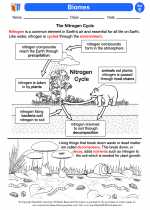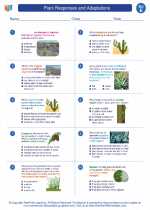Worms: An Introduction
Worms are a type of invertebrate animal that belong to the phylum Annelida. They are found in various habitats, including soil, freshwater, and marine environments. Worms play a crucial role in the ecosystem by helping to decompose organic matter and aerating the soil.
Types of Worms
There are several different types of worms, but the most common ones include earthworms, roundworms, and flatworms. Each type of worm has its own unique characteristics and habitat preferences.
Anatomy of Worms
Worms have a simple body structure, consisting of a long, tube-like shape. They lack limbs and often have a segmented body. They have a digestive system, a nervous system, and a circulatory system, although they are less complex compared to other animals.
Role in the Ecosystem
Worms are essential for maintaining healthy soil and contributing to the decomposition of organic matter. Their burrowing activities help to aerate the soil, allowing for better water and nutrient absorption by plant roots. This makes them crucial for maintaining soil fertility and overall ecosystem health.
Reproduction
Worms reproduce through a process called mating, where two worms exchange sperm. They are hermaphroditic, meaning they have both male and female reproductive organs. After mating, they produce eggs, which eventually hatch into young worms.
Study Guide
.◂Science Worksheets and Study Guides Fifth Grade. Plant Responses and Adaptations

 Activity Lesson
Activity Lesson
 Worksheet/Answer key
Worksheet/Answer key
 Worksheet/Answer key
Worksheet/Answer key
 Worksheet/Answer key
Worksheet/Answer key
 Vocabulary/Answer key
Vocabulary/Answer key
 Vocabulary/Answer key
Vocabulary/Answer key
